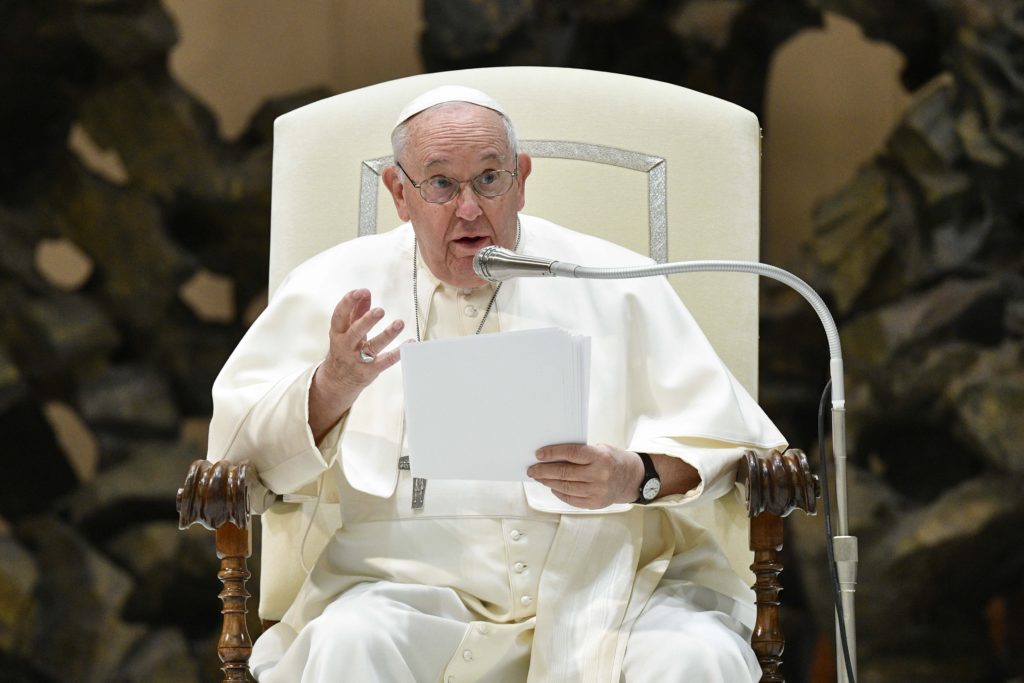On the feast of Sudan-born St. Josephine Bakhita, Pope Francis prayed for "a future of justice and peace for our brothers and sisters in Africa."
As is customary after a papal trip, the pope dedicated the main portion of his general audience Feb. 8 to sharing with visitors and pilgrims the highlights of his visit Jan. 31-Feb. 3 to Congo and his ecumenical pilgrimage to South Sudan Feb. 3-5 with Anglican Archbishop Justin Welby and the Rev. Iain Greenshields, moderator of the Presbyterian Church of Scotland.
"We went together to bear witness that it is possible and a duty to collaborate in diversity, especially if one shares faith in Jesus Christ," the pope told more than 5,000 visitors and pilgrims gathered in the Vatican audience hall.
"Together we listened to the Word of God, together we raised prayers of praise, supplication and intercession," the pope said. "In a reality as highly conflictual as that of South Sudan, this sign is fundamental, and not to be taken for granted, because unfortunately there are those who abuse the name of God to justify violence and oppression."
"This is why it is so important to bear witness that religion is fraternity, it is peace, it is communion; that God is the Father and always wants only life and the good of his children," Pope Francis said.
Congo, he told the crowd, is "a land rich in resources and bloodied by a war that never ends, because there is always someone to feed the fire."
The nation, like much of Africa, "has been colonized, exploited, plundered," he said, and now -- as the "shocking testimonies" of victims of kidnapping, rape and maiming made clear -- the greed for resources is killing people.
The rousing gathering with Congolese young people Feb. 2 in Kinshasa was an "exciting moment," he said. "I indicated five paths to them: prayer, community, honesty, forgiveness and service. May the Lord hear their cry, that invokes peace and justice."
Pope Francis explained that traveling to South Sudan with Archbishop Welby and Rev. Greenshields was "the culmination of a journey undertaken some years ago, when we gathered in Rome in 2019 with the South Sudanese leaders, to take on the commitment to overcome conflict and to build peace."
"Unfortunately, the reconciliation process has not advanced," he said. South Sudan became independent in 2011, but has been plagued by civil war and violence since 2013, a result of "the old logic of power and rivalry, which produces war, violence, refugees and internally displaced persons."
Pope Francis said he and his ecumenical partners urged the political leaders to "push forward" with the promises they have made and "to say a decisive 'no' to corruption and to arms trafficking, and 'yes' to encounter and dialogue."

